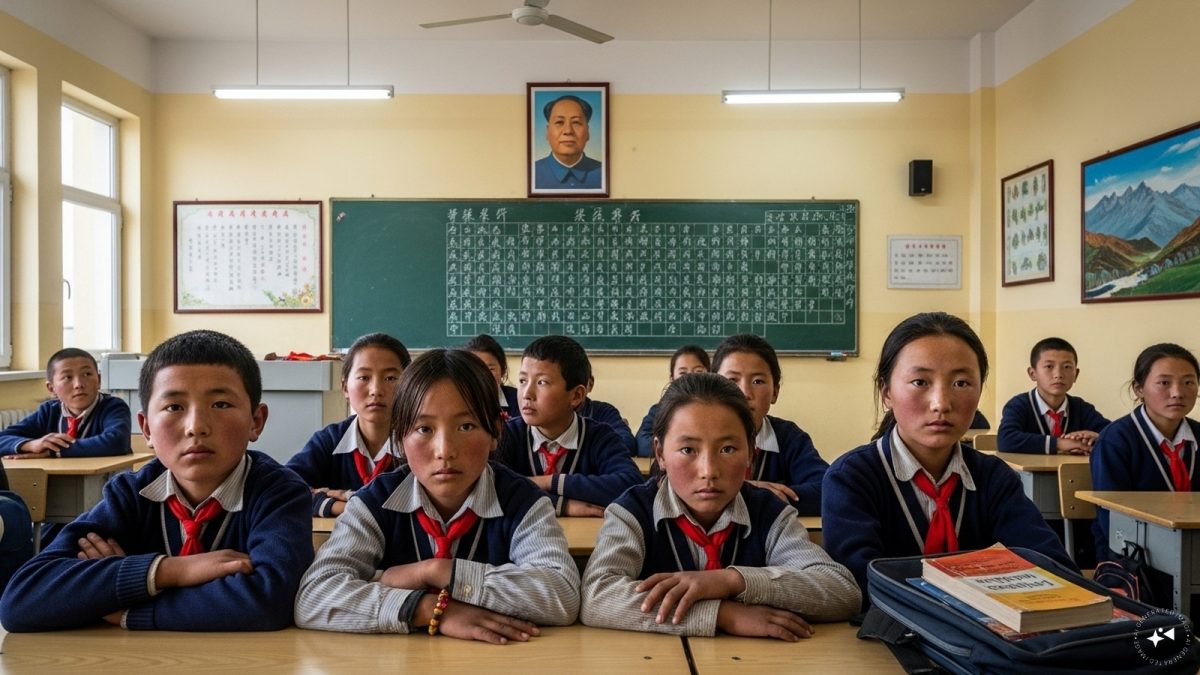China has inaugurated a new state-run boarding school in Chone, eastern Tibet, showcasing modern dormitories, classrooms and sports grounds as part of its drive to expand education in the region. But behind the official narrative of progress, rights groups warn, lies a strategy aimed at dismantling Tibetan culture.
The Tibet Action Institute (TAI), in its July 2025 report When They Came to Take Our Children, argues that the boarding school system is designed to detach Tibetan children from their families and immerse them in a Mandarin-first environment.
By removing youngsters—some as young as four—from daily contact with parents and grandparents, activists say Beijing is eroding the natural transmission of Tibetan language, religion and traditions.
“Beneath the shiny surfaces lies a strategy to eliminate an entire way of life,” TAI cautioned. Students are reportedly discouraged from speaking Tibetan, even at home, and often begin to feel ashamed of their heritage.
The new school targets children aged nine to twelve, a critical period in identity formation. Experts warn that prolonged separation from family and community risks long-term psychological harm while reinforcing state assimilation policies.
This separation disrupts the natural transmission of the Tibetan language, religion, and cultural values. Students reportedly begin to feel ashamed of their background and are discouraged from speaking Tibetan, even at home, as cited by Phayul.
Impact Shorts
More ShortsUN Special Rapporteurs previously expressed concern over this issue, noting that while only 20% of Chinese students nationwide attend boarding schools, nearly all Tibetan children are forced into them.
In a 2023 statement, the UN warned of the long-term psychological damage caused by such policies, describing the situation as a systematic effort to reshape Tibetan identity. While China markets these facilities as progress, critics argue they are instruments of state-sponsored cultural erasure.
As highlighted by Phayul, the international community is being urged to take urgent action. “Beneath the shiny surfaces”, TAI warns, “lies a strategy to eliminate an entire way of life.”
With inputs from agencies


)

)
)
)
)
)
)
)
)



